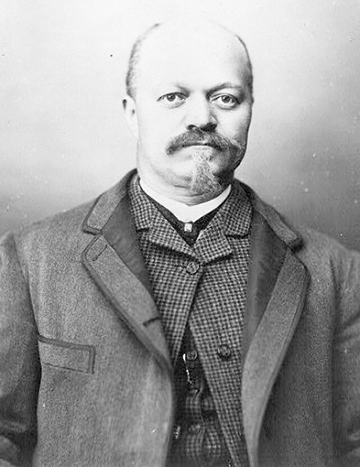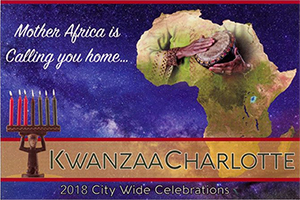
What Role Did Concord Play in Black History?

By Norman McCullough

Pursuant to a meeting held by the City Council of Concord North Carolina February 10, 2022, and a proclamation read by the mayor, it is important to understand the role that Concord played in the history of African Americans.
In 1895, there were many events that put Concord, NC., right in the middle of Black history. Specifically, 1895 marked a transition point for the community due to the passing of the iconic American known as Frederick Douglass. Douglass was understood to be the first leader of Black America. Douglass was born into slavery and was a man who could not say exactly when he was born, 1818 or 1819.
Douglass who was an abolitionist and his role in American history was outstanding as noted by many authors. As such, Black America, as noted in the 14th Amendment (now citizens) was looking for a new leader who had to come from the south because most Blacks lived in the south in the 1800's. Douglass' father was white and his mother a slave.
Booker T. Washington, a southern educator based in Alabama was selected by the leadership. Washington's father appears also to be white but because of the system, there was no birth certificate for Douglas or Washington. We are talking about a peculiar institution.
In 1895, there was a major event called the “Atlanta Exposition” in Atlanta, Ga. because Blacks, 30 years after chattel slavery could express themselves and the south could indicate that Blacks were doing "fine."
Another man who played a major role was Warren Clay Coleman because he was wealthy at the time and could support many Blacks who could not afford to attend the Exposition. Coleman was born in Concord in 1849, raised and died in Concord in 1904. He was born where the Cannon Library stands today and, his store was two blocks away on Union Street. He died from stress in his 4-bedroom home on Church and Cabarrus (formerly known as Depot). He did not go south or north like many others. Coleman’s brother Thomas, went to Atlanta, Ga.
In 1895, Coleman took a major step by making it possible for the Price (Temple) Memorial AME Zion church to be built, and remains in full operation today, and was recently refurbished due to a grant provided by the Cannon Foundation. I am proud to serve as one of the trustees.
Prior to building the church, in 1876 Coleman also made it possible to build a 17-acre cemetery known as the Old Campground Cemetery (OCGC). He, unlike Douglass and Washington was a real estate mogul and gave money to schools, churches and individuals seeking financing to build homes, as noted in a recent seminar with Ben Callahan. In line with these facts, he also built homes for himself and others in the Logan area and places inside and outside, now known as Cabarrus County.
People who have read my book on the subject, WarrenClayColeman.com have stated that Coleman's story is an inspiration for young and old, Black. or White. It should also be noted that Coleman's biological father, General Rufus Barringer, whose family originated from Mount Pleasant, after migrating from Germany also died in 1895. While gaining wealth, even though his store on Union Street was burned down 3 times, Coleman made the ultimate mark by providing leadership for the first Black manufacturing mill in the world, aside from those built in Egypt. A major accomplishment given his humble beginning as a chattel slave in America. The Coleman mill currently standing at 196,000 sq. ft. on 601 and Main St. is scheduled be a continuous service to the community by including 152 apartments for people and their families. I am certain that he would be pleased with the outcome of his work and many others like John Dancy, Richard Fitzgerald, and Duke family. These men were thinking about building a mill town where people could work, live, and worship within walking distance.
As we continue to build the Downtown area, it is important to embrace the legacy of Coleman and the people of his times that made a difference for America. Given this awesome history outlined, I am suggesting that Concord consider an appropriate recognition, aside from the 601 highways, for this man, his family (many recently met members of the Barringer family) and many others who made a difference for the town/county. As of February 26, 2022, in another celebration of Black history, the Cannon Library has made it possible to develop 50 or more photos of Barber Scotia, Logan and Shankeltown schools. Many of the people who attended these schools will be in attendance. Showing support of this endeavor would be greatly appreciated.


